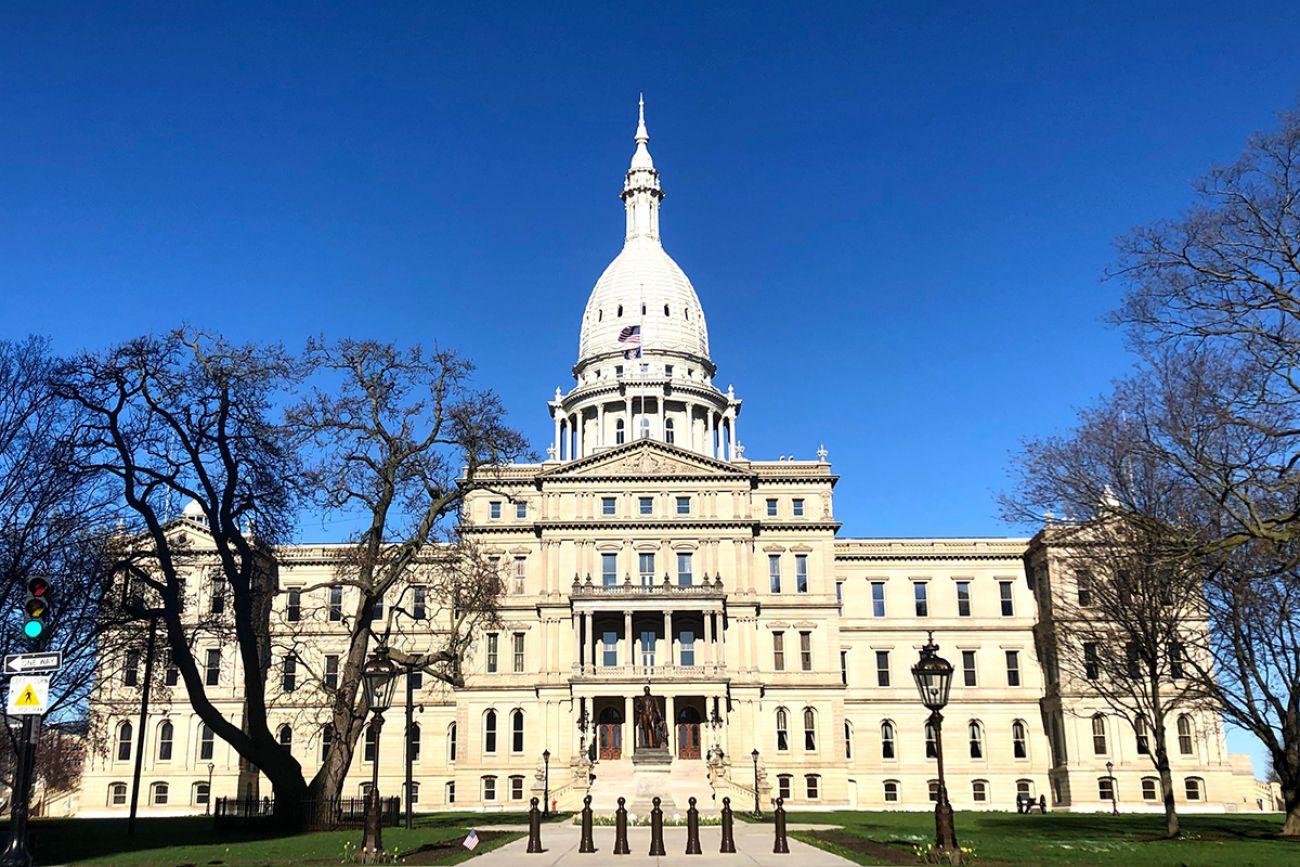Michigan Senate passes sexual assault reform six years after Nassar conviction

- Michigan Senate votes almost unanimously to pass the eight-bill package Thursday
- The bills were first introduced as a reaction to the 2018 Larry Nassar scandal
- Legislation would create a felony for those who sexually abuse their patients and lie to them about it
LANSING — A bipartisan legislative package to strengthen penalties for sexual assaults and protect survivors cleared the Michigan Senate almost unanimously Thursday.
The legislation will now head to the House.
The package was first introduced in 2018 following the conviction of Larry Nassar, a former U.S. women’s gymnastics team doctor and former Michigan State University physician who sexually assaulted hundreds of girls and women under the veil of medical treatments.
Related:
- New Michigan bills could give sexual abuse survivors more time to sue
- Michigan Democrats eye hate crime reform, look to add LGBTQ protections
- Michigan poised to ban employers from firing workers for having abortions
The eight-bill bipartisan package approved Thursday would restrict health care professionals from giving under-aged patients treatments or exams involving vaginal or anal penetration, establish a new felony for those who sexually assault patients under the guise of medical treatment and require public schools to improve awareness of sexual crimes among students.
“We are taking another step forward in preventing sexual assault, protecting survivors and improving accountability,” Sen. Stephanie Chang, a Detroit Democrat and lead sponsor of the package, said on the floor.
In reaction to the Nassar scandal, state lawmakers in 2018 introduced dozens of bills to reform Michigan’s sexual assault regulations, but only few became law.
Former Republican Gov. Rick Snyder signed laws that gave survivors more time to sue, allowed judges more flexibility to admit evidence in sexual assault cases and applied harsher penalties for sexually abusing children.
Chang’s package was among bills that stalled in the Legislature for six years after Nassar’s conviction in 2017. The package includes:
- SB66 to require public schools to hand out educational materials about sexual assault and harassment to students grades 6-12 and to encourage public schools to provide training to school staff.
- SB67-68 to establish a new felony for those offering medical treatments to lie to patients that their sexual contact or penetration is to benefit the patients’ health. Violations could result in up to 20 to 25 years in prison.
- SB69-70 to prohibit health care professionals from conducting exams or treatments that would penetrate a minor’s vaginal or anal area unless it is within their scope of the practice; another health care professional is in the room, and one parent or guardian has given consent. Violations would result in up to 2 to 5 years of imprisonment.
- SB71-72 to require treatments or exams involving vaginal or anal penetration to be documented in the patients’ medical records and must remain in the records for at least 15 years. Violations would result in up to two years in prison.
- SB73 to exempt documents that would reveal the identity of sexual assault survivors who wish to remain anonymous from public records disclosure.
Other sexual assault reforms are also advancing in the state Legislature. On Wednesday, the Senate passed a bill to make it easier for prosecutors to charge those who sexually assaulted someone who is drugged or drunk.
Lawmakers have also re-introduced a bipartisan bill that would give survivors until they turn 52 to sue for sexual abuse. The bill failed to gain traction in recent years amid opposition from universities, local governments and churches, who cited concerns for financial implications over old allegations.
Sexual violence is commonplace among Americans, according to data from the Centers for Disease Control and Prevention. More than half of women and almost one in three men have experienced physical sexual assault in their lifetime, and one in three women and one in nine men have experienced sexual harassment in public, the CDC says.
The Federal Bureau of Investigation received more than 70 reports of rape for every 100,000 Michigan residents every year between 2016 and 2019, data shows.
In 2019, the latest year such data is available, Michigan had 72 reports of rape per 100,000 residents, ranking the fourth highest in the entire nation and almost twice the national average that year.
See what new members are saying about why they donated to Bridge Michigan:
- “In order for this information to be accurate and unbiased it must be underwritten by its readers, not by special interests.” - Larry S.
- “Not many other media sources report on the topics Bridge does.” - Susan B.
- “Your journalism is outstanding and rare these days.” - Mark S.
If you want to ensure the future of nonpartisan, nonprofit Michigan journalism, please become a member today. You, too, will be asked why you donated and maybe we'll feature your quote next time!




